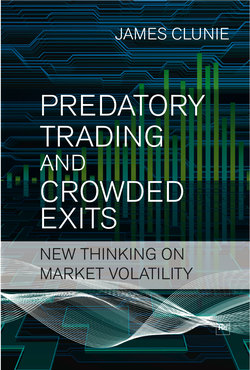Читать книгу Predatory Trading and Crowded Exits - James Clunie - Страница 13
На сайте Литреса книга снята с продажи.
Delayed arbitrage
ОглавлениеAnother way that arbitrageurs can deal with noise trader risk is via delayed arbitrage. This is discussed in an article by Abreu and Brunermeier (2002). They build a model for arbitrage that considers uncertainty about the market timing decisions of other rational arbitrageurs, and thus the timing of the price correction. They call this problem synchronisation risk. The model shows that rational arbitrageurs do not act immediately on knowledge of security over-valuation, but instead wait for other rational arbitrageurs to learn about the over-valuation. Acting immediately might lead to losses, if enough other rational arbitrageurs do not know of the over-valuation and fail to act at the same time.
The lesson from this model for traders is clear: arbitrage is more than just identifying mis-priced assets. A good short-seller should combine knowledge of mis-pricings with a catalyst. In this case, the catalyst is knowledge that other traders are about to short the security too. This concept of delayed arbitrage can help explain why apparently obvious market bubbles can continue to grow. Short-sellers, the very people who might be expected to prick the bubble and bring over-valued securities back into line, can be absent when they are needed most. And they would be absent for good reason – they want to avoid being overwhelmed by a tidal wave of optimistic noise traders.
